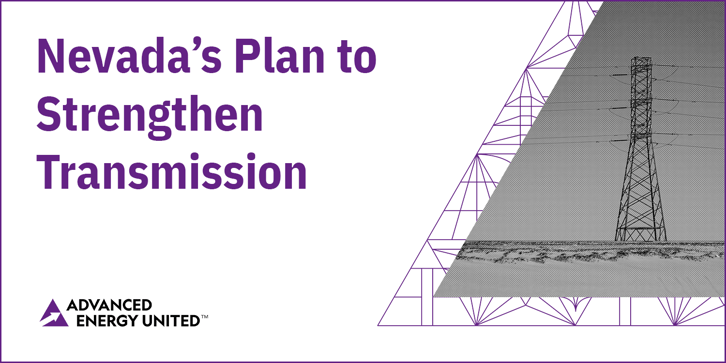
Continuing Clean Energy Momentum from Nevada's 2025 Legislative Session
Topics: State Policy, Nevada
The Dangers of Daily Demand Charges in Nevada

What is a daily demand charge?
A demand charge is a utility fee based on the maximum amount of energy a customer uses during a short period of time within a billing cycle. Nevada Power, a subsidiary company of NV Energy, is proposing to add a mandatory daily demand charge for its residential customers.
Under this plan, your electricity meter would be measured on a 15-minute cycle each day, and your bill will be based on the highest 15-minute period energy use during that day. For example, if your highest energy usage is from 6:45-7 PM on a day in July, the demand charge for that day will be based on this time, regardless of your usage during the rest of the day. This would be in addition to the basic service charge of $18.50 that customers already pay. This is something no other investor-owned utility (IOU) in the country currently does.
Topics: State Policy, Energy Efficiency, Nevada
Expanding Transmission to Meet Nevada's Growing Energy Demand

In Nevada, the need to significantly expand power generation, transmission capacity, and regional resource sharing is urgent as the state’s energy grid struggles to keep up with rapid economic and industrial growth. Northern Nevada’s energy grid, for example, could quadruple in size as the data-storage industry continues to grow and expand in the Reno-Sparks area and beyond. Strengthening and expanding transmission lines will be especially critical to ensure that the growing demand for energy can be met as new advanced energy resources come online.
In response to this need, nearly four years ago, Senate Bill 448 created a Regional Transmission Coordination Task Force to help shape Nevada’s energy future. The Task Force is responsible for studying issues and policies related to transmission development and regional electricity markets, both of which are key solutions to deal with load growth.
Topics: State Policy, Transmission, Nevada
NV Energy Proposes Additional Gas in 2024 IRP Despite Clean Affordable Alternatives

The 2024 NV Energy Integrated Resource Plan (IRP) proceeding is coming to a close, with a decision expected from the Public Utilities Commission of Nevada (PUCN) by December 20, 2024.
In Nevada, an IRP proceeding is conducted every three years with the goal of ensuring that NV Energy has the resources it needs to reliably and affordably serve Nevada’s electric customers and meet state policy goals. However, NV Energy’s proposed IRP, similar to those preceding it, exemplifies how the IRP process encourages investment in new gas resources, despite the availability of cheaper clean energy resources, such as Nevada’s abundant solar, geothermal, and distributed energy resources increasingly found on Nevadans’ rooftops and driveways.
Topics: Energy Efficiency, Economic Impact, Nevada, Virtual Power Plants, Integrated Resource Planning
NV Energy Misses Opportunity to Leverage Virtual Power Plants

Imagine having an abundance of cheap, advanced energy resources at your fingertips, but instead proposing to build another natural gas plant. This is what Nevada utility NV Energy is proposing in its 2024 Integrated Resource Plan (IRP).
Topics: Nevada, Virtual Power Plants